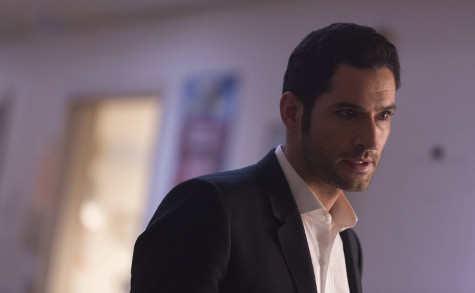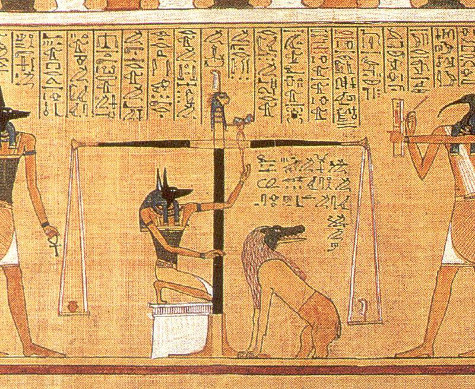
We’ve finally gone (back) to hell! The last time was at the end of Season 1 where Lucifer discovers Mum has escaped. Now, more exciting, we get to see Lucifer brave hell in order to save Chloe. We get to see how Lucifer’s version of hell is different from classical interpretations.
The very first foray into truly describing hell from the biblical framework is by Dante Aligheri, who described his own journey into and through hell. What he describes is thoroughly organized, with each sinner receiving a specific punishment depending on the type of sin. Lucifer abandons that idea in favor of “a torture of [one’s] own making.” This version of hell is completely customized by each sinner, like a Star Trek holodeck gone wrong, playing on an infinite loop. So, Dante’s circles are nowhere to be found, nor are there rivers, the city of Dis, and demons that run hell’s bureaucracy and administer torture.
Dr. Carlyle is condemned to forever live out his particular hell “until [he] no longer believe[s] [he] deserve[s] it.” This is a far more effective form of punishment than what Dante describes in his Inferno, making each prisoner also into the jailer. Release only comes when the guilt is purged and the person feels that the punishment has fit the crime. Unfortunately for the doctor, even Lucifer has “never seen anyone pull themselves out of [hell],” and he spent thousands of years running the joint.
This version of hell is far more deserving of the words Dante scribed for the gates of hell, “Abandon all hope, ye who enter here.” This also means that hell is not a place for reform but for punishment. Truly, everyone who ends up there is trapped for eternity without any hope. Even Lucifer falls victim to his own guilt in the cell with Uriel, endlessly playing out the utter destruction of his brother. He is as trapped as Dr. Carlyle, unable to move forward.
However—I can hear everyone saying—he did get out, but it wasn’t on his own. He had help from dear old Mum. She helps him contextualize his actions (as opposed to rationalize, which was Dr. Carlyle’s problem) as an attempt to save both Mum and Chloe from Uriel’s wrath. Likewise, he had to step in and save Mum from a different kind of eternal punishment. She sank into the guilt of having Uriel back, of regaining a lost loved one.
This idea is really not new, as guilt is often described as heavy and a weight. The ancient Egyptians describe a set of scales where a person’s heart is weighed against a feather. If the heart (which was part of the soul) was heavier than the feather, it would sink down to be devoured, forever trapped in the underworld. If not, it rose up and moved on to a blessed afterlife. This concept was even appropriated by Christians, though the bearer of the scales is Michael instead of Anubis or Osiris.

Lucifer removes the needs for an external judge at all. After death, the guilt a person feels pulls him or her down into one of the cells. It’s an efficient system requiring no external enforcement. The person’s own guilt pulls them down, and as long as that guilt is there, they remain in hell.
Here’s where we go radical.
Is this a system that was artificially created by God, or is it a natural phenomenon? What we know of God so far is that He doesn’t actually do much. He is silent at every turn. The biggest complaint against Him is that He doesn’t tell anyone what He wants. He sits back and waits patiently, only occasionally tweaking things—such as sending Amenadiel to bless Penelope Decker with a child.
If the sinking of a soul into hell is just a natural byproduct of guilt, then God isn’t deliberately sending anyone there. This might even apply to Lucifer and Mum, whose own actions drove them away from God for their defiance. Mum even remarks that “hell’s been constantly trying to pull [her] back,” most likely pulling on her own guilt like a black hole. And, can we extend the guilt any further? Is Amenadiel’s fallen state one of God’s punishment or of Amenadiel’s own guilt over his actions?
 I like to think Amenadiel is working off some of that guilt through his moment with Trixie and his actions in holding off hospital security, but we’ll have to wait to find out on that point.
I like to think Amenadiel is working off some of that guilt through his moment with Trixie and his actions in holding off hospital security, but we’ll have to wait to find out on that point.
Maze brings up an entirely different aspect of this mythology. She’s quite clear that “demons don’t have a soul,” which firmly places them as separate from fallen angels, who apparently do have souls since Lucifer dies and comes back. We also have to ask, what is the purpose of demons in hell if each sinner is also the torturer and jailer? It seems that not everyone fits that perfect model, though, as Maze spent thousands of years trying to break Mum but didn’t succeed. They may, as Lucifer did to Dr. Carlyle, antagonize sinners into more guilt.
Our visit to hell was quite interesting and certainly expanded the world of Lucifer. It will be interesting to see where we go next. If Mum has her way, heaven—but for now it appears that Lucifer has cashed in his chips and gone on walkabout.
See also: Playing God: Exploring the Mythology in Lucifer, Episode 2.12: “Love Handles”
Andy Adams is an adjunct professor of English at various colleges in the Phoenix area. He has an affectation for fedoras as they complement his villainous goatee. He’s been known to poke his head onto Twitter @A3Writer, but he’s never been big into birds. He blogs at A3writer.com about writing, teaching, and the conquest of fictional worlds—they’re more fun than the real world.
Read all posts by Andy Adams for Criminal Element.

“Her unwavering grace and dignity remained true throughout her life and now her everlasting legacy,” he added.